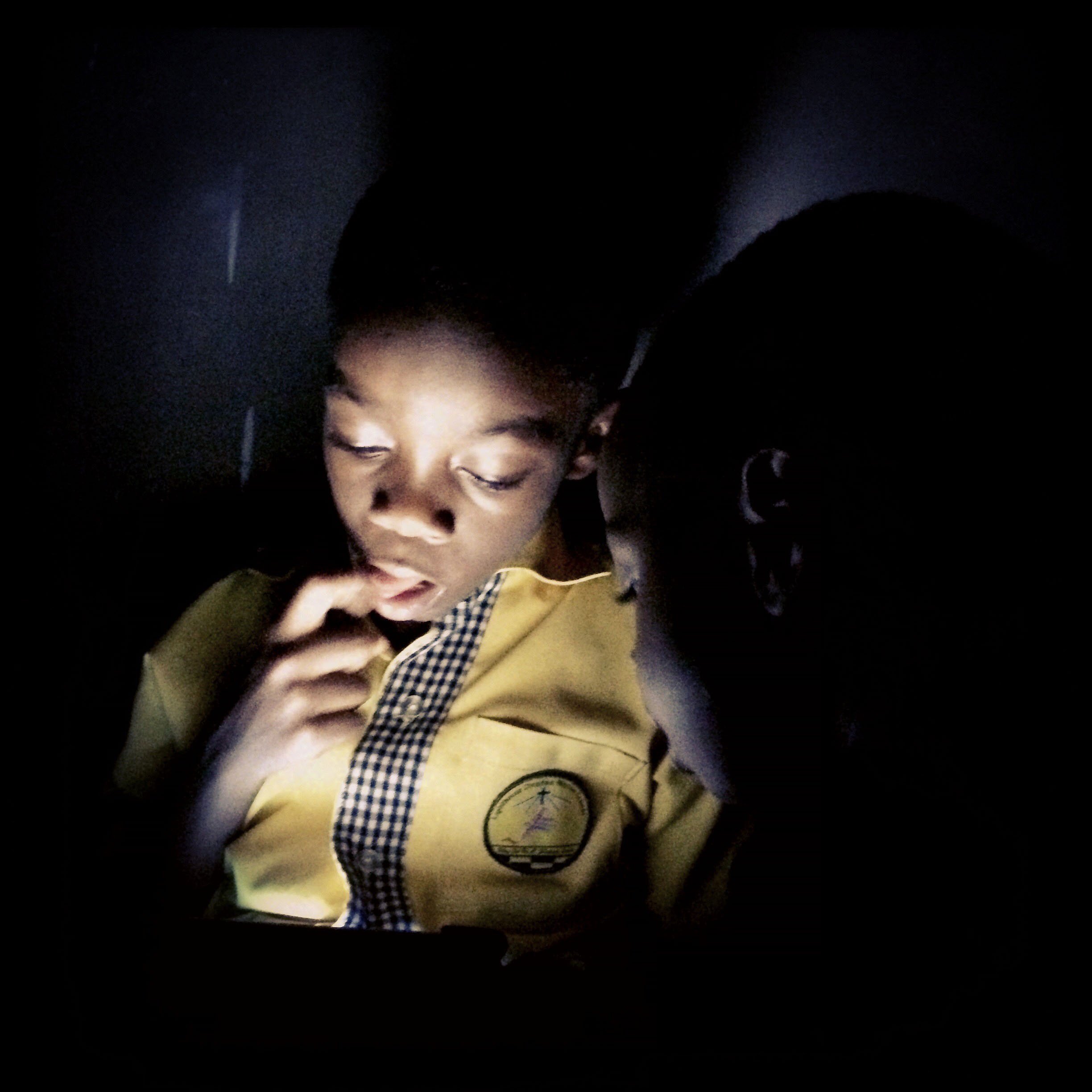Picture this: an Africa where schoolboys play on iPads, where girls jump off high diving boards at community pools, where people excitedly gather at poetry slam festivals. More often than not, these are not the scenes featured in Western media outlets.
Now, thanks to Everyday Africa, a viral Instagram account turned international movement, stereotypical portrayals of the continent are being challenged with each post.
“The whole point of the project is to try to rise above the stereotypes that harm the world,” co-founder, journalist, and industry insider, Austin Merrill, told Global Citizen. “Africa is largely known as a place burdened by poverty, conflict, and disease and this an attempt to combat that perception. We’re trying to find a way to make the mundane beautiful.”
This past month, more than 250 photos from the feed have been published in the group’s new book, “Everyday Africa: 30 Photographers Re-Picturing a Continent.”
During an assignment in West Africa in 2012, Merrill and his co-founder, photographer Peter DiCampo, turned their cameras away from photographing refugees and victims of the decade-long civil war in the Ivory Coast and instead began capturing scenes of everyday life.
“We were doing a piece that no one was talking about,” Merrill said. “And yet while we were there, we sort of felt like we were just piling on yet another story of crisis, refugees, and war crimes from Africa.”
The duo believe there’s a certain “incompleteness” in the nature of those kinds of stories.
Having lived in West Africa as journalists and former Peace Corps volunteers for years, each one knew that “for the vast majority of the people, most of the time, life’s actually extremely normal.”
Africa is a continent bigger than China, India, the contiguous U.S., and most of Europe combined — and is just as diverse, with 54 countries and as many as 2,000 languages. Western photographers have a tendency to clump together entire countries, generalize cultures, and create narratives that focus solely on poverty, disease, and war.
Read More: These Photographers Are Changing the Narrative on How Their Cultures Are Seen by Others
For this reason, the team of 35 photographers — both native Africans and international correspondents — have worked tirelessly to curate a story and newsfeed that anyone could relate to. The recently published book, in which at least 40 countries in the continent are represented, is an attempt to put into a tactile form what they’ve accomplished so far.
The feed has elicited a wide range of responses, so the team decided to include comments in the book that specifically address stereotypes and understand how people misperceive different parts of the world.
“What you find along the way is that quite often some of these negative reactions that have nothing to do with the image,” Merrill said. “Instead it has everything to do with what that person brought to the image.”
A group of children jumping ropes provoked the response: “Why are Africans treated so horribly?” A dark image of a boy whose face is illuminated by the glow of his iPad prompted a discussion about technology in West Africa after somebody asked if iPads are “even common in Ghana?” Another user commented on a picture of two teenagers sharing headphones, calling them “darkies.”

Read More: These Stunning Photographs Show How Farmers Are Facing Climate Change
In the book, comments are intentionally separated from the images in order to give readers room to form their own opinions.
Back in early 2014, the co-founders started noticing similar “Everyday” Instagram accounts popping up in Asia, the Middle East, Eastern Europe, and Latin America. They reached out to other account managers and met in New York in 2015 to form the non-profit organization “Everyday Projects.”
Since then, the accounts have not only focused on geographical stereotypes, but also various social issues — from incarceration to climate change to religion.
“We’re trying to build a global community of people telling the stories of places and issues,” Merrill said.
And now, they’re bringing these conversations into classrooms across America.
In 2014, the organization received a grant from the Open Society Foundation to build a curriculum and pilot a middle and high school workshop for kids in New York’s South Bronx.

“We start every session with the same question: what do you think of when we say the word ‘Africa’? And kids always throw out the words: ‘slavery’, ‘disease’, ‘war,’” Merrill explained. “We talk about why we have these perceptions of this part of the world, and what kind of effect journalism, movies, and TV commercials might have on them.”
From there, they turn the focus on the students themselves, asking them what kinds of stereotypes they’re burdened with, before bringing them into the community to take photographs together.
Since then, they’ve initiated similar classroom programs and curriculums in DC, Chicago, San Francisco, and Atlanta.
“I think that part of the problem when you think about Africa is that too often when someone in the West sees a story about conflict or famine or corruption in Africa, there’s kind of a shrug of the shoulders. Like, ‘Well, too bad, but they’re used to that there’ or ‘That’s what life’s like there,’” Merrill said. “If Everyday Africa can somehow demonstrate that that’s not what life’s like and that when bad things happen there, it’s devastating for people there the same way it’s devastating for people here, we’ll understand and work with each other better.”




